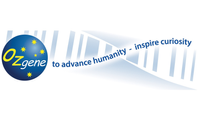

- Home
- Companies
- Ozgene Pty Ltd.
- Services
- Ozgene - Humanized Mice Service

Ozgene - Humanized Mice Service
Humanized mice broadly refers to mice expressing human genes via transgenesis to gain relevant insights in the in vivo context for the understanding of human-specific physiology and pathology. Whilst many basic biological insights have been obtained from mouse studies, there are limitations to mouse models when investigating human biology. There are components of mouse biology systems that are inconsistent with their human counterparts, particularly the immune system. Humanized mouse models have begun to fill this gap and have become important pre-clinical tools for biomedical research. The use of humanized mice may facilitate the application of customised treatment in the medical industry.
Humanized mice aim to recapitulate the in vivo function of human proteins. Therefore, they are widely used to study and develop treatments for human diseases. Humanized mice are particularly helpful for pre-clinical drug validation of human therapeutic antibodies. In recent years, they have become invaluable tools for cancer research as models for immune checkpoint target validation and immuno-oncology.
Human cDNA or human genomic DNA is homologously recombined into the mouse genome with the aim to replace anything, from a single amino acid residue to a functional domain or even an entire mouse gene, with the human equivalent. This leads to the expression of the humanized protein in place of the mouse protein. Each humanization project is based on your requirements and we will assess your gene of interest to find the most appropriate approach.
At Ozgene, the timelines, efficiency and animal ethics of all mouse projects, including large genomic humanizations, have been significantly improved by the proprietary goGermline™ technology.
